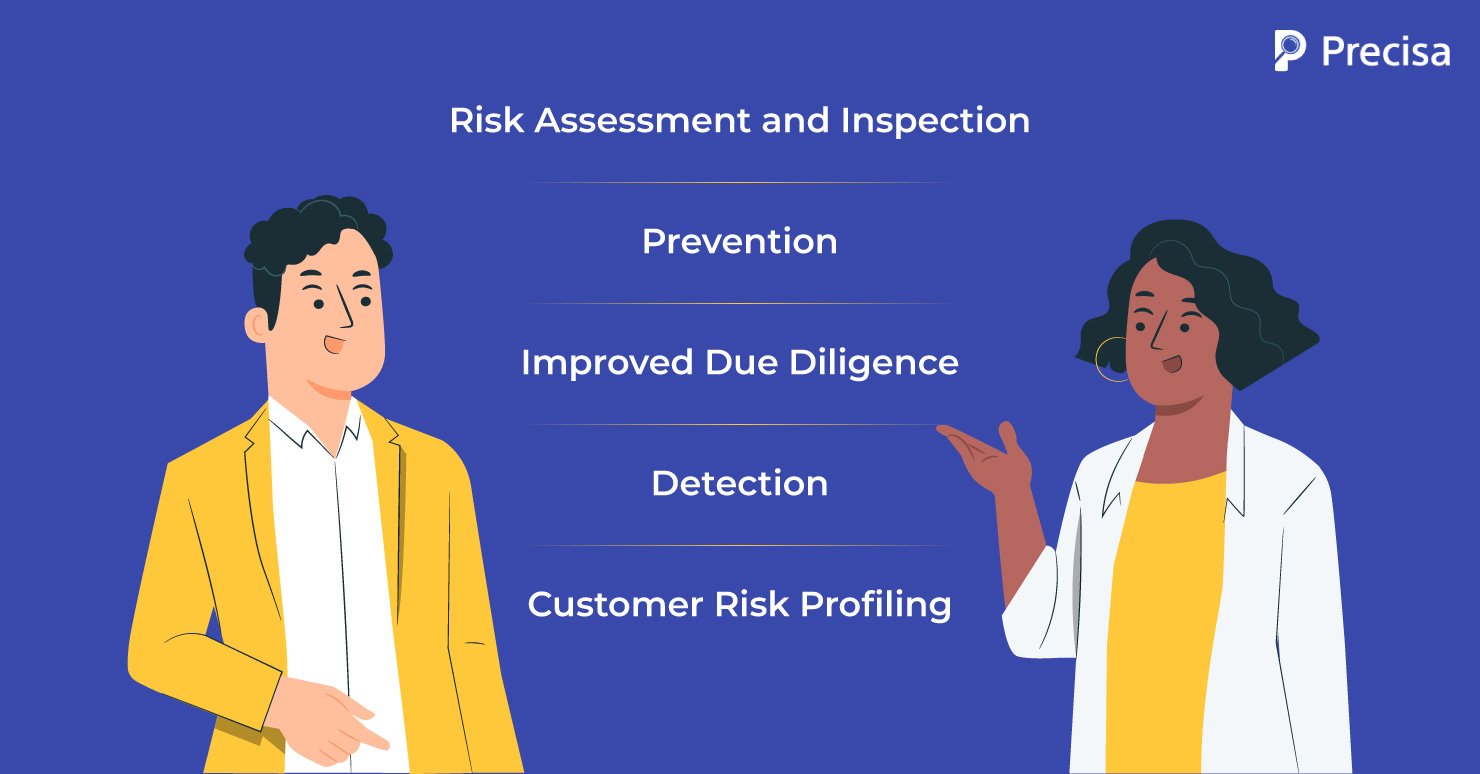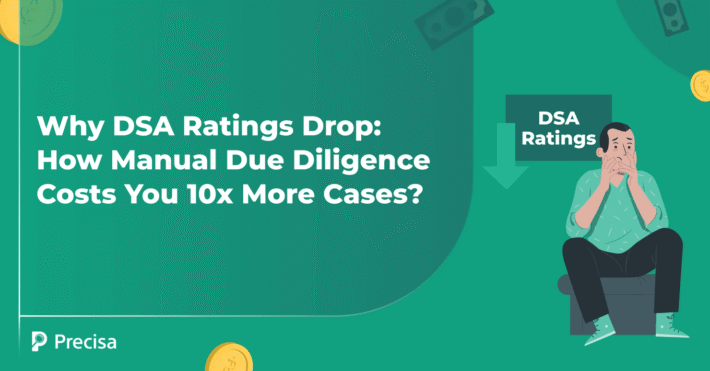5 Ways Lenders Can Prevent Economic Offences and Financial Crimes

The Indian police registered approximately 193,000 economic offences in 2022, an 11% growth from the previous year. These crimes accounted for 5.4% of all the crimes reported that year. Furthermore, the National Crime Records Bureau (NCRB) has broadly divided economic offences into three main categories: criminal breach of trust, counterfeiting and forgery, and cheating and fraud.
Although economic offences continue to grow, the number of convictions has steadily declined due to the mounting pendency of court trials. Therefore, lenders must do their part to safeguard our economic systems from complex and digital financial crimes.
This article explores the lender’s role in preventing economic offences and how they can detect and report them.
Economic Offences Concerning the Lending Sector
Lenders are vulnerable to a range of economic offences and financial crimes that can question the financial system’s credibility.
These include:
1. Money Laundering
Since 2014, the Enforcement Directorate (ED) has registered more than 5,200 money-laundering cases, including 40 convictions and 3 acquittals. Money launderers typically try to disguise money earned from illegal or criminal activities as legitimate funds using financial services and loans.
Most lenders are prone to money laundering if they aren’t able to identify the source of funds and detect suspicious transactions.
2. Suspicious or Fraudulent Applications
India reported more than 36,000 bank fraud cases in the financial year 23-24. The onset of digital banking platforms, coupled with the non-identification of Early Warning Signs (EWS), has significantly driven lending fraud in India.
Fraudulent loan applications typically contain incorrect information provided by borrowers to secure a loan, including inaccurate employment records, credit scores, and other critical financial data.
3. Cybercrime
While the digitalisation of the lending sector paves the way for convenience and better user experiences, it also opens the floodgates for cybercriminals to commit cyber crimes, including fraudulent loan applications, malware, data breaches, and phishing attacks. Therefore, lenders must deploy robust fraud detection frameworks and comply with data protection regulations.
What Can Lenders Do to Prevent Economic Offences?
As technology advances, so do financial crimes. Lenders can combat fraud by using AI and machine learning to enhance due diligence processes.
Here are a few things lenders can do to prevent economic offences:
Risk Assessment and Inspection
Despite significant technological developments, we haven’t yet developed systems that can guarantee 100% security. However, lenders can design and implement a robust security framework if they understand the weaknesses and the nature of the risks they are vulnerable to.
- One of the first steps toward tackling economic offences is an in-depth risk assessment to understand the maximum potential damage of different crimes.
- Once the risk assessment is over, lenders can implement targeted solutions and hire relevant specialists rather than depending on generic security measures.
- Risk assessment primarily covers several areas, including anti-money laundering, cybercrime response plans, cyber-attack vulnerability, general fraud risk assessment, and anti-bribery and corruption (ABAC).
Prevention
The advent of new technologies coupled with resilient efforts to curb economic offences has paved the way for efficient control and protective measures to make lenders less vulnerable to financial crime.
- That said, lenders should take the necessary measures to respond to the looming warning signs.
- It is also worth noting that most crimes occur without prior warning, so it is imperative for lenders to craft a sustainable code of ethics and ensure their staff understand the importance of adhering to anti-fraud protocols.
- Lenders must go above and beyond to create a culture of transparency and make their position on economic offences clear to their staff.
Detection
As mentioned earlier, new technologies, including AI, are at the heart of unearthing anomalies and suspicious activities. Many lenders are increasingly using AI in audits and analysing financial transactions to detect patterns and spot identity thefts when fraud is committed.
Lenders leverage technology to detect fraudulent identities in real time, flagging suspicious activity like emails from unknown addresses, risky IP addresses, and suspended phone numbers. These indicators help lenders make informed decisions and mitigate the risk of financial crimes.
Improved Due Diligence
Lenders cannot solely depend on surface-level or basic due diligence to prevent financial crimes. At present, an in-depth due diligence framework is crucial, especially for high-risk customers and transactions.
This primarily involves collecting additional transactions and personal information from customers to detect the possibility of money laundering. These measures should ideally used for politically exposed individuals, customers from high-risk countries, and high-networth individuals.
This can include collecting a few additional documents, making on-site visits, and conducting thorough background checks.
Customer Risk Profiling
Customer Risk Profiling involves analysing the risks associated with specific customers using a customer rating system. The customer rating system is based on different parameters, including the customer’s business model, industry, geographic location, and transaction volume.
Lenders can allocate relevant resources depending on the customer’s rating and potential to commit an economic offence and mitigate money laundering risks.
Final Words
While committing economic offences remains an ethical problem, lenders can no longer turn a blind eye to the risks of data breaches, fraudulent activities, and financial crimes that can potentially hurt the integrity of our financial systems.
As offenders find new and innovative ways to breach financial systems, lenders must proactively respond to these threats to tackle reputational and financial risk.
Cloud-based analytics solution Precisa’s Anti-money Laundering (AML) analysis empowers lenders to transform their financial investigations with advanced tools to examine money trails and cybercrime. Never lose sight of complex intra-bank transfers and data from multiple banks to detect unusual trends and suspicious financial activity.
Sign up today!




